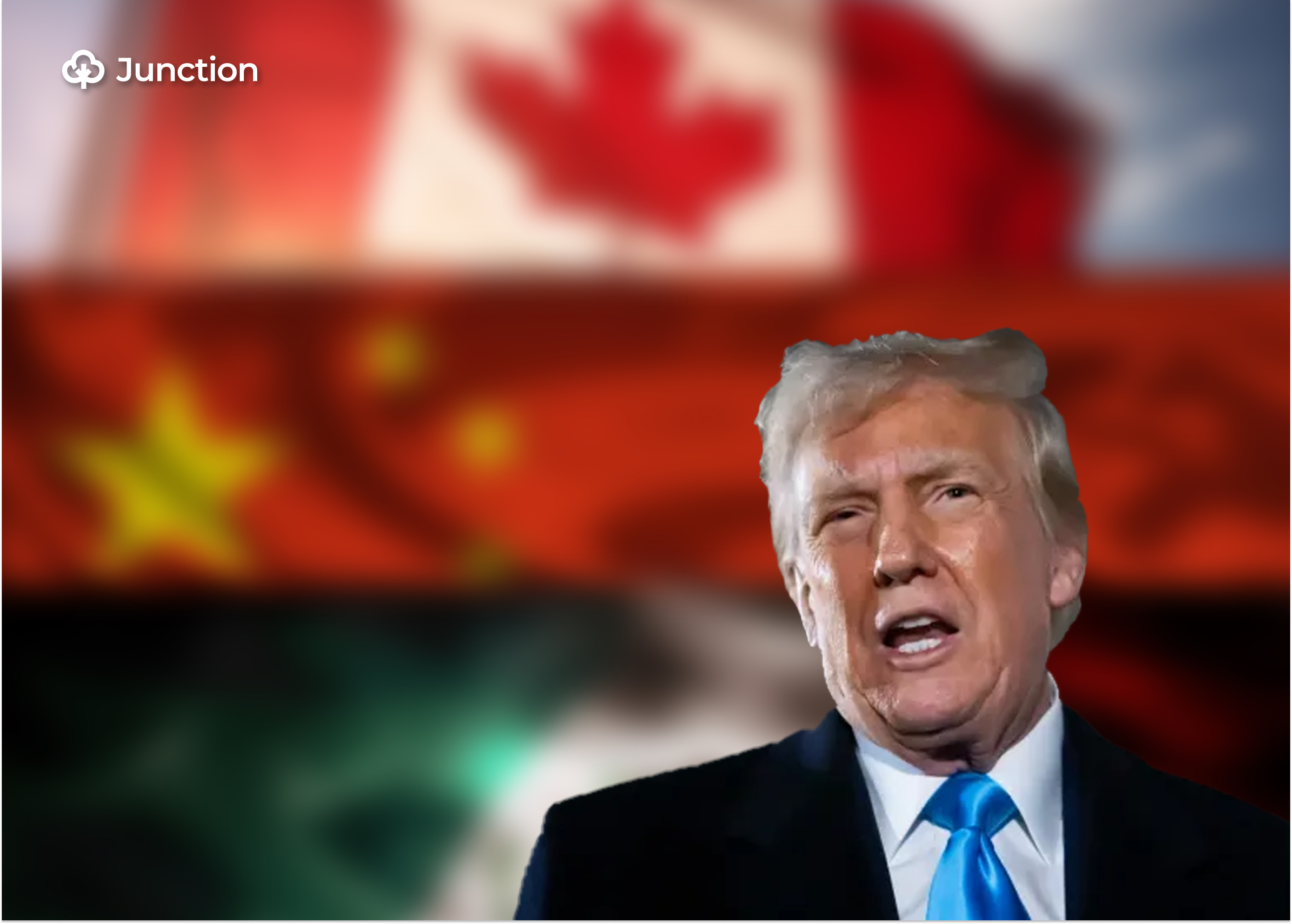News in brief:
– Trump’s new tariffs on Canada, Mexico, and China could severely impact US farmers by increasing export costs, raising input prices, and creating market uncertainty.
– Farmers are urged to explore alternative markets, advocate for favourable trade policies, and manage costs to mitigate potential losses.
The recent decision by former President Donald Trump to impose tariffs on Canada, Mexico, and China has sent shockwaves through the agricultural industry. With 25% tariffs on Canadian and Mexican goods and 10% on Chinese products, the impact on U.S. farmers and agribusinesses could be significant.
What this means for farmers
Canada, Mexico, and China are three of the largest buyers of American agricultural products. In 2024, US exports to these countries amounted to $75.9 billion and $94 billion the year prior, representing a crucial market for American farmers. Retaliatory tariffs from Canada and Mexico will likely make US agricultural exports less competitive, leading to potential revenue losses for farmers who rely on international trade.
Mexico has indicated it will implement “carousel retaliation,” meaning it will target different US products at different times. This strategy ensures maximum political and economic pressure. Canada has already announced 25% tariffs on $106 billion worth of US goods, including agricultural products.
Key concerns for farmers
- Higher Export Costs – Retaliatory tariffs from these major trade partners mean that US agricultural products will be more expensive for foreign buyers, reducing demand.
- Rising Input Costs – The US imports about 80% of its potash fertiliser from Canada, along with crop protection products and energy supplies. Tariffs on these goods could lead to increased costs for farmers.
- Market Uncertainty – Farmers already face fluctuating prices due to global supply chain issues and economic conditions. The added strain of tariffs creates more instability in planning and pricing their crops and livestock.
Industry reactions
Farm organisations, including the Nebraska Farm Bureau and Farmers for Free Trade, have voiced concerns that tariffs could further squeeze struggling farmers. Meanwhile, supporters of the tariffs argue that they are necessary to protect American manufacturing and trade interests.
What can farmers do?
- Diversify Markets – Look for alternative export markets beyond Canada, Mexico, and China.
- Advocate for Trade Agreements – Engage with policymakers to push for trade deals that support agricultural exports.
- Optimise Input Costs – Work with suppliers to find cost-effective alternatives for fertilisers and crop protection products.
The coming months will be critical in determining how these tariffs will affect the agricultural sector. Farmers and agribusiness owners must stay informed and proactive to navigate these uncertain times.



